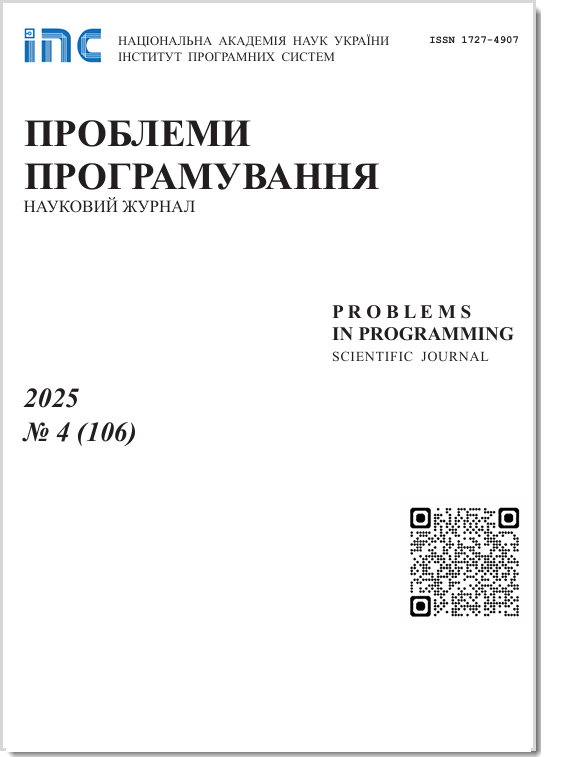Use of semantic technologies for dialogue between labor market subjects
Abstract
The paper analyzes publications related to the development trends of national qualifications systems, which should link the market of educational services to the labor market. Such an analysis suggests that an effective tool for solving this problem is ESCO – the Multilingual Classification of European Skills, Competences, Qualifications and Professionals. ESCO defines and classifies skills (both "soft" and "hard"), competences, qualifications and occupations that are relevant to the European labor market, education and training. ESCO classifier proposes the basis for creating a "passport of acquired competencies". It is used in several European Commission initiatives in the field of skills and qualifications aimed at increasing the transparency of the labor market and educational systems. The development of tools that allow the effective use of ESCO and ensure the transition from a qualification model to full competency models, is seen as an up-to-date and timely scientific task.
Subjects of the labor market can describe their proposals or requirements through non-formalized characteristics that are often non-material (such as team spirit, social skills, leadership skills) and use different terms to describe such characteristics, therefore the problem of comparing the semantics of such descriptions is occursed. Semantic technologies aimed at the information processing at the knowledge level (oriented on formalizing, analyzing and processing the semantics of information resources) can solve such a problem.
In this regard, the publication presents the theoretical substantiation of UkrESCO designed to create a passport of acquired competencies, to search for vacancies and to compare competencies with job requirements based on the ESCO model using Semantic Web technologies and information resources of the Web open information environment.
UkrESCO can be considered as an intelligent superstructure over existing systems that compares and evaluates competencies, matches qualifications with vacancies and form a passport of acquired competencies. Practical implementation of UkrESCO becomes an effective tool for the formation in Ukrainian society of understanding of the value of throughout life education in the personal and professional self-development of person.
Problems in programming 2018; 2-3: 226-235
Keywords
Full Text:
PDF (Українська)References
Oleynikova O.N. & Muraveva A.A. & Akyonova N.M. (2009) Life-long learning as an instrument for implementing the Lisbon Strategy. - M .: RIO TK Konyaev, 131 p.(in Russian)
Borimchuk YU.M. (2015) Implementation of the Strategy for Promoting Youth Employment in Europe // Labor Market and Employment of the Population, 4 (45), P. 50-53. (in Ukrainian)
Boyarchuk L.V. (2015) Application of foreign experience in the work of the State Employment Service of Ukraine / L.V. Boyarchuk // Scientific Bulletin of Polissya, N 1 (1). P. 65-70. (in Ukrainian)
Mahsma M. (2007) Global trends in the transformation of employment in the conditions of globalization of the economy // Ukraine: aspects of labor, N 4. P. 10-15. (in Ukrainian)
Luksha P.& Peskov D. & Afanasyev M. (2016) The future of education: global agenda / P. Luksha, and others - S.: Skolkovo Institute of Science and Technology, 196 p. (in Russian)
Lins S. With "MOOC" or not with "MOOC"? Learning of the future. (in Russian) Available from: http://vzagranke.ru/razvitie/grani/global/s-mooc-ili-ne-s-mooc-ucheba-budushhego.html.
Recommendations of the Council for the recognition of non-formal and informal learning (2012), Brussels: Commission of the European Union. 21 p. (in Ukrainian)
Educational Service Degreed - a New Approach to Higher Education. (in Russian) Available from: http://www.aleksandr.kz/resursyi/founding-scholars-jailbreaking-the-degree.html#.WOPsNWekIdU.
Integrated certificate of online education is developed in Europe. (in Ukrainian) Available from: http://osvita.ua/abroad/higher_school/distance-learning/44715/.
European Commission (2013). ESCO: European Classification of Skills/Competences, Qualifications and Occupations, http://bookshop.europa.eu/en/esco-european- classification-of-skills-competences-qualifications-and- occupations-pbKE0313496.
MILES A. & BECHHOFER S. (2009) SKOS Simple Knowledge Organization System Reference, World Wide Web Consortium (W3C) recommendation, . - www.w3.org/TR/skos-reference.
European policy and social partnership in the EU: handbook / N.G. Didenko, I.Ya. Todorov, O.R. Chugrin, O.K. Mikheev / Ed. By N.G. Didenko - Donetsk: DonNUU, 2012. 150 p. (in Ukrainian)
Lundqvist K.O. & Baker K.D. & Williams S.A. (2008) An ontological approach to competency management. Available from: http://www.eife-l.org/publications/proceedings/ilf07/ Contribution110.doc.pdf
W3C Semantic Web Activity. Available from: http://www.w3.org/2001/sw/Activity/
Warren P. (2006) Knowledge Management and the Semantic Web: From Scenario to Technology. IEEE Intelligent Systems. 21, 1, 53-59.
https://doi.org/10.1109/MIS.2006.12
OWL Web Ontology Language Semantics and Abstract Syntax. Section 2. Abstract Syntax. Available from: http://www.w3. org/ TR/owl-semantics/syntax.html.
Lassila O. & Swick R. Resource Description Framework (RDF) Model and Syntax Specification, W3C Recommendation. Available from: http://www.w3.org/TR/REC-rdf-syntax.
DE Smedt J. & LE Vrang M. & Papantoniou A. (2015) ESCO: Towards a Semantic Web for the European Labor Market. LDOW@ WWW, . Available from: http://ceur-ws.org/Vol-1409/paper-10.pdf.
Pryima S. & Rogushina J. (2017) Ontological approach to qualifications matching on base of competences: model and methods // Scientific bulletin of NGU, N 6. P. 162-168.
Rogushina J. & Priyma S. (2017) Development of methods for support of qualification frameworks transparency based on semantic
technologies / Information Technologies and Learning Tools, Vol. 59, N 3. P. 201-210. Available from: http://journal.iitta.gov.ua/index.php/itlt/ article/view/1655/1201.
Rogushina J. (2017) Analysis of Automated Matching of the Semantic Wiki Resources with Elements of Domain Ontologies // International Journal of Mathematical Sciences and Computing(IJMSC), Vol. 3, N 3. P. 50-58. https://doi.org/10.5815/ijmsc.2017.03.05
Rogushina J. & Priyma S. Use of Competence Ontological Model for Matching of Qualifications // Chemistry: Bulgarian Journal of Science
Education, 2017, Vol. 26, №2. - P. 216-228.
https://doi.org/10.1002/pds.4096
Rogushina J. & Pryima S. (2017) The use of ontologies and semantic web to provide for the transparency of qualifications frameworks // Eastern-European Journal of Enterprise Technologies, 2017, Vol. 1, N 2 (85). - P. 25-31. Available from:
https://doi.org/10.15587/1729-4061.2017.92815
http://journals.uran.ua/eejet/article/view/92815.
Rogushina J.V. (2017) The Use of Ontological Knowledge for Semantic Search of Complex Information Objects // Open semantic technologies for intelligent systems, 2017. P. 127-132.
Rogushina J. (2016) Semantic Wiki resources and their use for the construction of personalized ontologies // CEUR Workshop Proceedings
P. 188-195.
DOI: https://doi.org/10.15407/pp2018.02.226
Refbacks
- There are currently no refbacks.









